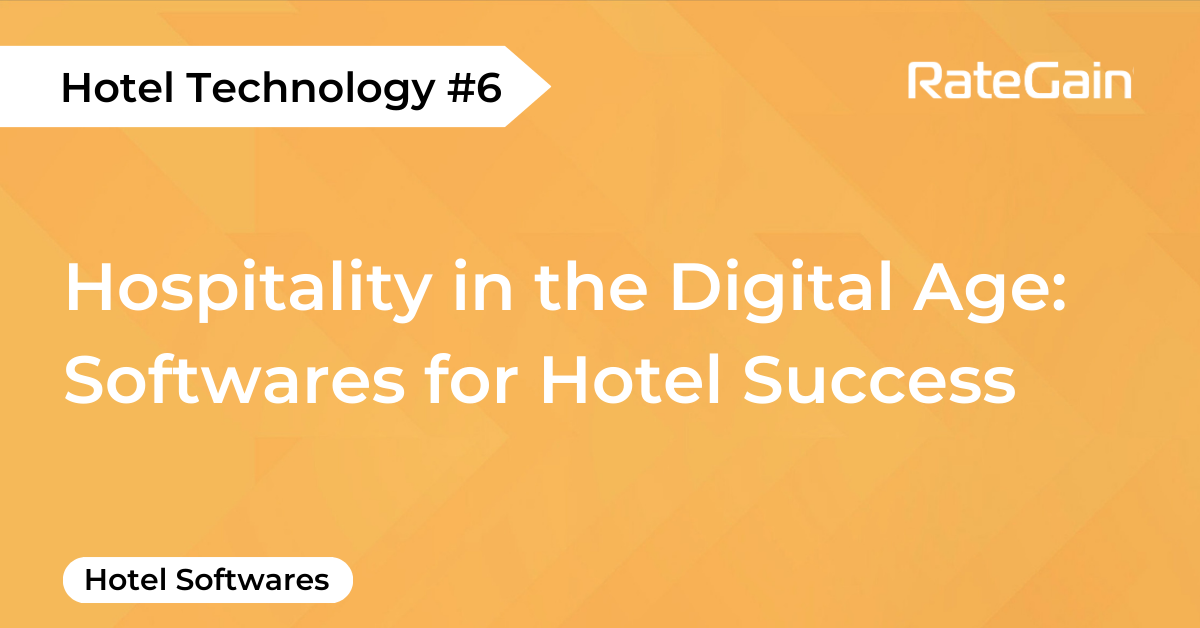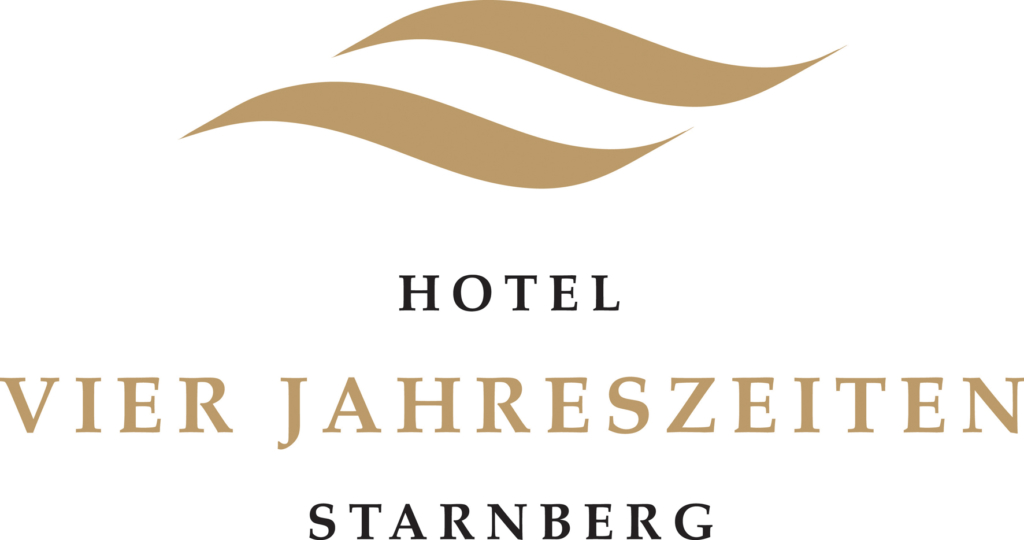In today’s digital age, the hospitality industry has undergone a significant transformation, largely driven by the evolution of hospitality softwares. These platforms, ranging from hotel management systems to guest experience platforms, have redefined the way hoteliers and other hospitality professionals operate, ensuring a seamless experience for guests and efficient operations for businesses.
The Evolution of Hotel and Travel Technology: A Journey Through Time
The hospitality industry has always been at the forefront of innovation, constantly adapting to the changing needs of guests and the evolving landscape of technology. Let us now journey through the evolution of hotel and travel technology, highlighting the significant milestones that have shaped the industry we know today.
-
The Dawn of Modern Hospitality (1800s – 1900s)
The Tremont House, opened in Boston in 1829, is often regarded as the first modern hotel. It was the first of its kind to feature indoor plumbing for guests, setting a new standard for guest comfort and convenience. The late 1800s also saw the establishment of the first travel agency by Bernardo Abreu and the opening of the first hotel school in Lausanne, Switzerland.
In the 1900s, hotels began to embrace technology in a big way. The Netherland Hotel in NYC introduced the first in-room telephones in 1894, and by 1910, electricity became widely prevalent in hotels. The Boston Park Plaza Hotel offered the first in-room radios in 1927, and the Roosevelt Hotel in NYC installed guest room TVs in 1947.
-
The Rise of Automation and Digitalization (1950s – 1990s)
The mid-20th century marked the beginning of automation in the hospitality industry. Westin debuted the first guest credit card in 1946 and established the first hotel reservation system in 1947. Howard Johnson became the first hotel to franchise in 1954, and Sheraton introduced the first hotel automated electronic reservation system and toll-free reservation phone number in 1957.
The late 20th century saw the advent of digitalization in the hospitality industry. Hotels worldwide began offering online booking and reservations in the mid-1990s. In 1995, VocalTec introduced the first Voice over Internet Protocol (VoIP) application, which was soon adopted by hoteliers worldwide. The first online travel agencies, including Expedia, Travelocity, and Bookings.nl, debuted in 1996.
-
The Digital Revolution (2000s – Present)
The turn of the century marked the beginning of the digital revolution in the hospitality industry. In 2000, TripAdvisor launched, eventually becoming the largest online travel review and comparison shopping website. More than 6,000 hotels made WiFi available to guests by 2003.
The release of the iPhone in 2007 marked a significant change in how businesses and consumers viewed the capabilities of mobile technology. Apple launched its App Store in 2008, and INTELITY launched its mobile hotel app with the Eliot Hotel, Boston, MA as its first customer in the same year.
The hospitality industry made a significant shift to contactless solutions in 2020 due to the global COVID-19 pandemic. Hyatt became the first hotel brand to offer hotel room keys in Apple Wallet in 2021, marking another milestone in the industry’s journey towards digital transformation.
The evolution of hotel and travel technology is a testament to the industry’s resilience and adaptability. As we look forward to the future, we can expect to see even more innovative solutions that enhance the guest experience and streamline operations. The journey of the hospitality industry is far from over, and the next chapter promises to be just as exciting as the last.
Harnessing the Digital Wave: Advantages and Applications of Hospitality Software
The hospitality industry, characterized by its dynamic nature and emphasis on impeccable guest experiences, has been revolutionized by the advent of technology. Hospitality software, in particular, has emerged as a game-changer, offering a plethora of benefits and applications that have transformed hotel operations and guest interactions.
Let us now explore the advantages and diverse applications of hospitality software in today’s digital age.
Advantages of Hospitality Softwares
In the dynamic world of hospitality, technology has emerged as a cornerstone of innovation and efficiency. Hospitality software, with its myriad of benefits, has become the linchpin, driving operational excellence and crafting unparalleled guest experiences. Here are some of the most important benefits of hotel softwares:
- Streamlined Operations: One of the primary benefits of hospitality software is the automation and streamlining of hotel operations. From reservations to billing, software solutions ensure that processes are efficient, reducing manual errors and enhancing productivity.
- Enhanced Guest Experience: With features like personalized recommendations, instant bookings, and virtual concierge services, hospitality software plays a pivotal role in elevating the guest experience, ensuring that their stay is memorable.
- Data-Driven Decisions: Hospitality software provides valuable insights and analytics, allowing hoteliers to make informed decisions. Whether it’s understanding guest preferences, peak booking times, or room occupancy rates, data-driven insights can significantly impact strategy and profitability.
- Real-time Communication: Software solutions facilitate real-time communication between hotel staff and guests. Whether it’s addressing a room service request or providing information about local attractions, instant communication enhances guest satisfaction.
- Cost Efficiency: By automating various processes and reducing manual intervention, hospitality software can lead to significant cost savings in the long run.
Applications of Hospitality Softwares
The digital transformation of the hospitality sector is evident in the diverse software solutions tailored to its unique needs. From managing room bookings to deciphering guest preferences, the applications of hospitality software are vast, ensuring that hotels stay ahead in the competitive landscape.
- Cloud-Based Property Management Systems (PMS): Cloud technology is streamlining hotel operations. Modern PMS solutions, hosted on the cloud, offer real-time data access on room occupancy, revenue, and guest preferences, in addition to seamless integrations and scalability. They ensure that hoteliers can manage operations efficiently, from any corner of the world.
- Hotel Channel Manager: A Hotel Channel Manager tool optimizes room inventory, rates, and availability across multiple online platforms, ensuring accurate updates and maximizing online visibility and bookings. With guests using multiple platforms to book rooms, channel management software ensures that room rates and availability are consistent across all distribution channels, be it the hotel’s website, OTAs, or travel agents.
- Online Booking and Mobile Apps: Mobile apps and online booking platforms offer guests user-friendly ways to search, compare, and reserve accommodations, enhancing convenience and boosting hotel revenue.
- Data Analytics and Business Intelligence: Advanced hotel data analytics provide insights into guest preferences, trends, and booking patterns, enabling informed decisions and personalized marketing strategies.
- Guest Experience Technology: Self-check-in kiosks, mobile keyless entry, and personalized apps enhance guest experiences, providing convenience, control, and personalized services.
- Guest Feedback and Review Systems: These tools allow hotels to gather feedback from guests, understand areas of improvement, and manage online reviews. Positive online reviews can significantly impact bookings and reputation.
- Revenue Management Systems: Revenue Management Systems analyze data to optimize pricing and revenue strategies, enabling dynamic pricing adjustments for competitiveness and increased profitability. It ensures that hotels maximize their revenue, especially during peak seasons
- Customer Relationship Management (CRM) Tools: CRM tools in the hospitality industry focus on managing guest data and enhancing guest relationships. They store guest preferences, past interactions, and feedback, allowing hotels to offer personalized experiences.
- Virtual Concierge Services: Leveraging AI and chatbots, virtual concierge services provide guests with information, answer queries, and assist with bookings, all through digital platforms.
By harnessing the power of these hotel software solutions, hotels can ensure operational excellence, drive revenue, and offer unmatched guest experiences in an increasingly digital world.
However, with these advancements come a set of challenges that hoteliers must address to ensure seamless operations and guest satisfaction.
The Challenges in Hospitality Softwares
It is only by understanding the challenges in hotel softwares and proactively addressing them that the hoteliers can leverage technology to its fullest potential, ensuring operational excellence and unparalleled guest experiences.
Here’s a list of the most critical challenges with respect to hotel softwares that the industry faces.
-
Integration Issues
One of the most significant challenges in hospitality softwares is integration. Hotels often use multiple software solutions – Property Management Systems (PMS), Customer Relationship Management (CRM) tools, Revenue Management Systems (RMS), and more. Ensuring that these systems communicate effectively with each other can be a daunting task. Without proper integration, data discrepancies can arise, leading to operational inefficiencies and guest dissatisfaction.
-
Data Security Concerns
With the increasing reliance on digital platforms, data security has become paramount. Hotels collect vast amounts of personal and financial data from their guests. Ensuring that this data is stored securely and is safe from cyber threats is crucial. A single data breach can tarnish a hotel’s reputation and result in significant financial losses.
-
Keeping Up with Rapid Technological Advancements
The pace at which technology is evolving can be overwhelming. New software solutions and updates are released frequently. For hoteliers, keeping up with these changes and ensuring that their systems are up-to-date can be challenging. Outdated software can lead to operational inefficiencies and may not offer the features that modern guests expect.
-
Training and Adaptability
Introducing a new software solution or updating an existing one requires training staff to use it effectively. The learning curve associated with new technology can lead to mistakes and operational hiccups. Ensuring that all staff members, from the front desk to housekeeping, are comfortable using the software is essential for smooth operations.
-
High Costs and ROI Concerns
Investing in top-tier hospitality softwares can be expensive. For many hotels, especially smaller establishments, the high costs associated with purchasing and maintaining software can be a deterrent. Moreover, hoteliers often grapple with concerns about the return on investment (ROI). Ensuring that the software leads to increased efficiency, enhanced guest experience, and ultimately, higher revenues is crucial.
-
Customization and Scalability
Every hotel is unique, and a one-size-fits-all software solution may not address the specific needs of each establishment. Finding software that can be customized to suit a hotel’s requirements while also being scalable to accommodate growth can be challenging.
Innovations in Hospitality Technology: Pioneering the Future of Guest Experiences
The hospitality industry, known for its commitment to guest satisfaction, has always been quick to adopt technological advancements. As we navigate the digital age, the innovations in hospitality technology are not just enhancing operations but are redefining the very essence of guest experiences. Let us now explore the latest technological breakthroughs that are setting new benchmarks in the industry.
-
Artificial Intelligence (AI) and Chatbots
AI has made significant inroads into the hospitality sector. Chatbots, powered by AI, are now a common feature on hotel websites and apps, providing instant responses to guest queries, facilitating bookings, and offering personalized recommendations. These virtual assistants ensure that guests receive immediate assistance, any time of the day.
-
Internet of Things (IoT)
The IoT is revolutionizing guest room experiences. From smart thermostats that adjust room temperatures based on guest preferences to voice-activated assistants like Amazon’s Alexa or Google’s Assistant, IoT devices are ensuring that guests have a seamless and personalized stay.
-
Virtual Reality (VR) and Augmented Reality (AR)
Imagine touring a hotel room or exploring a holiday destination before making a booking. VR and AR are making this possible. Hotels are using VR to offer virtual tours, while AR apps are enhancing guest experiences by providing interactive information about local attractions.
-
Metaverse
The concept of the metaverse, although not fully understood yet, is anticipated to play a role in travel. It is expected to provide a more refined and engaging experience for travelers compared to AR and VR. Hotels such as the Millennium Hotels & Resorts have already opened the Metaverse hotel.
-
Sustainable Technology
With growing environmental concerns, hotels are adopting sustainable travel technologies. From solar panels to water-saving devices, the focus is on reducing the carbon footprint and promoting eco-friendly stays.
-
Contactless Solutions
The recent global events have accelerated the adoption of contactless technologies. Mobile check-ins, digital room keys, and contactless payments are ensuring guest safety without compromising on convenience.
-
Biometric Authentication
Security in the hospitality industry is paramount. Biometric authentication, using facial recognition or fingerprint scanning, is ensuring that access to rooms and hotel facilities is more secure than ever. This technology not only enhances security but also adds a touch of sophistication to the guest experience.
-
Biometric Technology in Travel Payments
Fintech and payment companies will utilize biometric technologies to simplify travel-related payments, reducing disputes between service providers and customers. Touchless payment systems and non-cash financial credits like travel vouchers will gain popularity.
Key Performance Indicators (KPIs) in Hospitality
In any industry, especially in hospitality, understanding and monitoring Key Performance Indicators (KPIs) is crucial. These metrics provide insights into the performance of a hotel or hospitality business, helping stakeholders make informed decisions.
-
Understanding the Most Crucial Hotel KPIs
KPIs are quantifiable metrics that reflect the performance and health of a business. In the hospitality sector, some of the most critical KPIs or hospitality statistics include Occupancy Rate, Average Daily Rate (ADR), and Revenue Per Available Room (RevPAR).
By monitoring these metrics, hoteliers can gauge their property’s success, identify areas of improvement, and strategize accordingly.
-
How to Effectively Evaluate Hotel Performance Using These KPIs
Evaluating hotel performance isn’t just about numbers; it’s about understanding what these numbers signify. For instance, a high occupancy rate might indicate strong demand, but if ADR and RevPAR are low, it could mean the hotel is underpricing its rooms. Using platforms and tools that offer insights can help hoteliers interpret these KPIs, compare them with industry benchmarks, and implement strategies to optimize performance.
The Best Hospitality Software of 2023
The hospitality sector has seen a surge in technological advancements in the lat few years. With the ever-evolving needs of guests and the challenges posed by external factors like the coronavirus pandemic, the industry is in dire need of robust software solutions.
-
Features to Look for in Modern Hospitality Software
Modern hospitality software is not just about reservations and billing. It encompasses a range of features, from guest messaging and feedback systems to mobile check-ins and digital room keys.
As highlighted by hospitality leaders, the post-pandemic world has emphasized the need for contactless solutions, making features like mobile keys more relevant than ever. Additionally, integration capabilities, cloud-based operations, and data analytics are some of the must-have features in the best hospitality softwares for a brighter future of hospitality.
-
The Impact of the Coronavirus Pandemic on Hotel Software Needs
The pandemic has undeniably reshaped the hospitality industry. With safety and hygiene becoming paramount, hotels have had to rethink their operations. This shift has led to an increased demand for software solutions that offer contactless operations, real-time room sanitization updates, and virtual concierge services. The industry’s pivot towards such solutions is not just a temporary change; it’s a long-term evolution that will define the future of hospitality.
Benchmarking in the Hotel Industry
Benchmarking is the practice of comparing a hotel’s performance against industry standards or competitors. It provides hoteliers with a clearer picture of where they stand and what they need to improve.
-
The Significance of Benchmarking for Hoteliers
In the competitive world of hospitality, merely operating isn’t enough. Hoteliers need to know how they fare against their peers. Benchmarking provides this perspective. Whether it’s comparing occupancy rates, guest feedback scores, or any other KPI, benchmarking offers insights that can drive improvement.
A lot of platforms today provide property- and portfolio-level insights that are crucial for making smart, data-driven decisions.
-
Gaining Property- and Portfolio-Level Insights for Improved Decision-Making
With such platforms and analytics dashboards, hoteliers can dive deep into data, analyzing performance at both property and portfolio levels. Such granularity helps in identifying trends, understanding guest preferences, and spotting areas of concern.
For instance, if a particular property consistently underperforms in guest satisfaction, targeted interventions can be implemented. On the other hand, if a specific hotel chain sees a surge in bookings in a particular region, expansion strategies can be considered.
Revenue Management in Hospitality
Revenue management, often termed as yield management, is a strategic approach to pricing that aims to maximize a hotel’s revenue. In the hospitality industry, where demand can fluctuate significantly, understanding and implementing effective revenue management strategies is crucial.
Best Practices for Hotel Revenue Management
Effective revenue management goes beyond just setting room rates. It involves understanding market demand, analyzing competitor pricing, and leveraging seasonality. Some best practices include:
- Dynamic Pricing: Adjusting room rates in real-time based on demand, competitor prices, and other external factors.
- Segmentation: Categorizing guests based on their booking behavior, price sensitivity, and stay patterns to tailor pricing strategies.
- Overbooking: Intentionally selling more rooms than available, considering a certain percentage of no-shows or cancellations. This strategy, however, requires careful management to avoid guest dissatisfaction.
- Channel Management: Ensuring room rates and availability are consistent across all distribution channels, be it the hotel’s website, OTAs, or travel agents.
Tools and Strategies for Maximizing Revenue in the Hospitality Sector
With the rise of technology, several tools have emerged to assist hoteliers in revenue management. These tools offer features like real-time market data, competitor rate analysis, and demand forecasting.
Integrating such tools with the hotel’s Property Management System (PMS) can automate many revenue management tasks, allowing for more accurate and timely decisions. Moreover, strategies like offering package deals, loyalty programs, and last-minute discounts can also play a pivotal role in maximizing revenue.
Emerging Trends in the Hospitality Sector
The hospitality industry is ever-evolving, with new trends emerging each year. Staying updated with these trends is essential for hoteliers to remain competitive and cater to the changing preferences of guests.
Predictions for the End of 2023 and Beyond
As we approach the end of 2023, several trends are shaping the future of hospitality:
- Sustainability: With growing environmental concerns, hotels are moving towards sustainable practices, from eco-friendly amenities to waste reduction.
- Personalization: Leveraging AI and data analytics, hotels are offering personalized experiences, from room preferences to curated itineraries.
- Wellness Tourism: An increasing number of travelers are seeking wellness experiences, leading to the rise of spa resorts, yoga retreats, and health-centric hotels.
- Smart Hotels: The integration of IoT devices, from smart thermostats to voice-activated assistants, is enhancing the guest experience.
How Hotels Can Leverage These Trends for Success
Adapting to emerging trends is not just about implementation; it’s about integration. For instance, while adopting sustainable practices, hotels should ensure it aligns with their brand image and messaging.
Personalization, on the other hand, requires understanding guest preferences at a granular level, necessitating robust data management systems. By staying updated with industry trends and integrating them effectively into their operations, hotels can ensure continued success and guest satisfaction.
The hospitality industry stands at the crossroads of tradition and innovation, with software solutions playing a pivotal role in shaping its future. Staying abreast of these hospitality softwares and understanding the emerging trends can make all the difference.
And so, those equipped with the knowledge and tools will not only survive but also thrive, and pave the way for a prosperous and dynamic future in hospitality.



